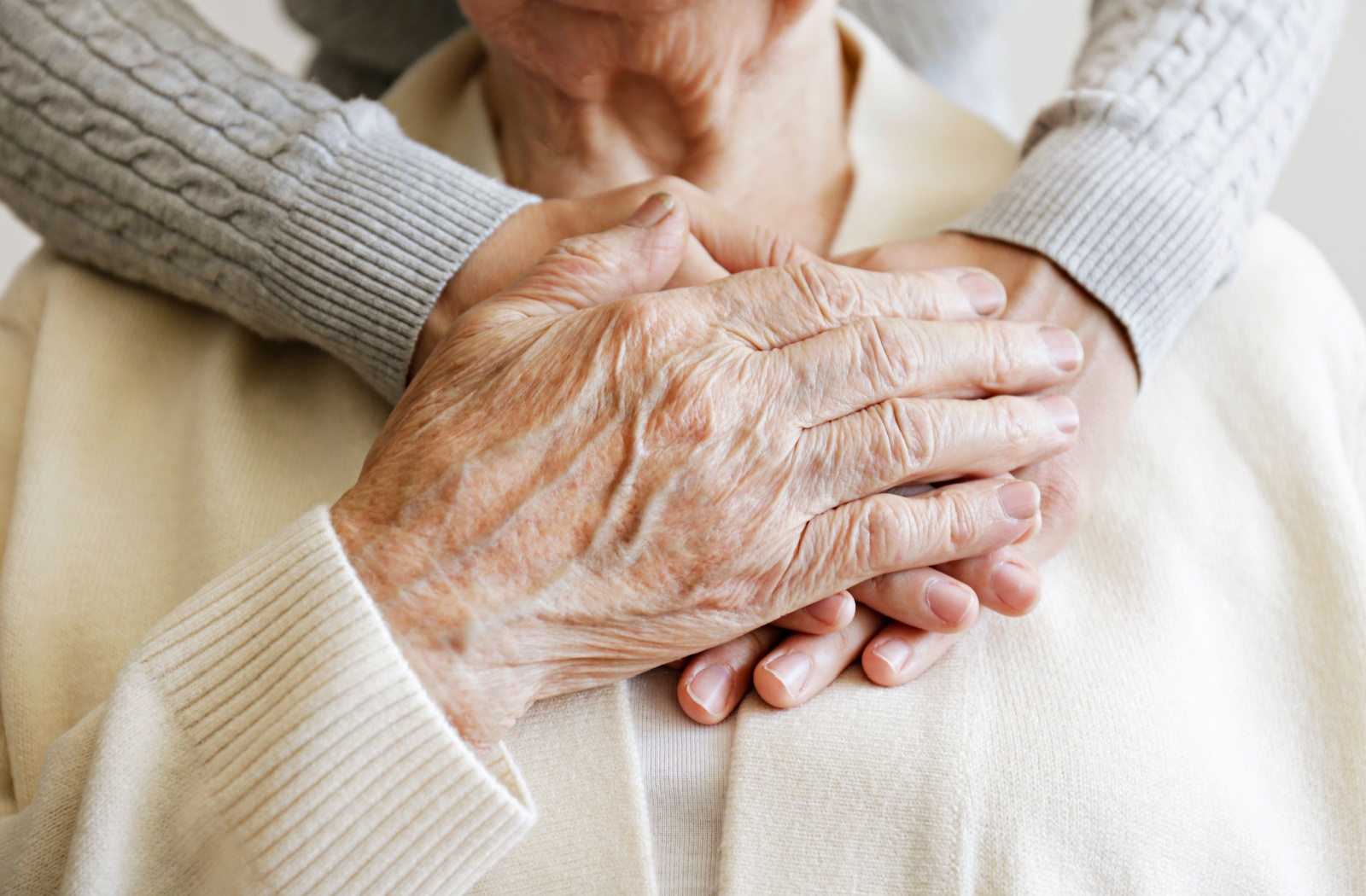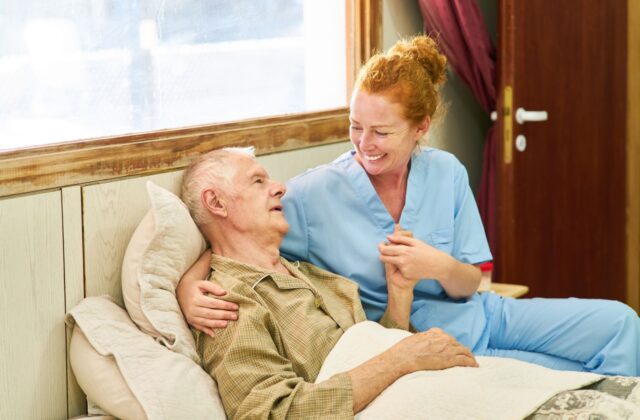Hospice care is a compassionate approach to end-of-life care that prioritizes the comfort and dignity of patients with terminal illnesses. Unlike traditional medical care, the focus of hospice is not on curing the illness but on managing symptoms and supporting patients and their families.
Often, families will want to have their loved one’s final days spent in the comfort of their own home. Choosing hospice care at home allows them to remain in a familiar and comfortable environment, surrounded by their family.
Hospice care at home focuses on providing comfort and support to patients with terminal illnesses in their own homes. A team of healthcare professionals manages pain and symptoms, offers emotional and spiritual support, and assists with daily activities.
The Philosophy of Hospice Care
Hospice care is not a place but a philosophy centered on providing comfort and quality of life. At its core, it is about respecting the wishes of the person needing care and ensuring their final days are spent as peacefully and comfortably as possible.
The philosophy emphasizes holistic care, which includes physical, emotional, and spiritual support. The goal is to manage pain and other distressing symptoms to allow patients to enjoy their time with loved ones without the stress of medical appointments and interventions.
Hospice Care Services at Home
One of the significant advantages of hospice care is that it can be delivered right in the comfort of a person’s home. This is particularly beneficial for individuals who prefer to remain in a familiar environment surrounded by family and cherished memories. Hospice care at home includes a range of services tailored to meet the unique needs of each person and their family:
- Pain and Symptom Management: Skilled healthcare professionals work to manage pain and control symptoms like nausea or difficulty breathing. This can greatly improve a patient’s quality of life.
- Medical Equipment and Medication: Hospice care often includes the provision of necessary medical equipment and medications to manage the patient’s condition at home.
- Personal Care Assistance: Hospice aides assist with daily activities such as bathing, dressing, and eating, which can become challenging for patients in their final days.
- Nutritional Guidance: Dieticians provide tailored nutritional advice and support to ensure the patient receives appropriate nourishment.
Benefits for Patients & Families
For many families, hospice care at home offers significant emotional and practical benefits:
- Personalized Care: Care plans are customized to fit the patient’s needs, ensuring that they receive the best possible care tailored to their situation.
- Time with Family: Families have the invaluable opportunity to spend quality time with their loved one in a setting that feels safe and comfortable rather than in a clinical environment.
- Reduced Stress: The burden of traveling to medical facilities is eliminated, allowing families to focus on what truly matters—being present with their loved one.
- Continuous Support: Hospice teams provide consistent support, ensuring families feel supported day and night. This includes regular visits from nurses and access to on-call professionals for emergencies.
Role of Healthcare Professionals
A dedicated team of healthcare professionals, including doctors, nurses, social workers, and chaplains, collaborate to provide comprehensive support. Each member of the team plays a crucial role:
- Nurses: Monitor the patient’s condition and coordinate care, adjusting treatment plans as needed.
- Social Workers: Offer emotional support and assist with practical matters, such as accessing community resources.
- Chaplains: Provide spiritual guidance, which can be a source of comfort for patients and families grappling with end-of-life issues.
Emotional Support & Bereavement Counseling

Hospice care extends beyond the physical needs of the patient by addressing the emotional and psychological aspects of end-of-life care. Emotional support is a pivotal component, helping families cope with the stress and grief of losing a loved one. Hospice organizations often offer:
- Bereavement Counseling: Available to families both before and after the passing of their loved one, bereavement counselors provide support and guidance tailored to the needs of the grieving family.
- Support Groups: Families can participate in support groups to connect with others who are experiencing similar challenges, share stories, and learn coping strategies.
Volunteer Support
Volunteers are integral to hospice care, offering companionship to patients and respite for caregivers. They may engage in activities like reading to the patient, playing music, or simply being a comforting presence. Their involvement enriches the patient’s experience and provides families with much-needed support.
The Importance of Managing Symptoms
Effective symptom management is central to hospice care. By addressing pain and other symptoms, hospice care allows patients to focus on meaningful interactions with their families. This approach respects the dignity of the patient, ensuring that their remaining days are spent with the highest quality of life possible.
Compassionate, Patient-Centered Care
Hospice care at home provides a compassionate and patient-centered approach to end-of-life care. By focusing on comfort, dignity, and emotional support, hospice allows patients to live their final days surrounded by loved ones in a familiar setting.
The dedicated team of healthcare professionals, coupled with the support of volunteers, ensures that both patients and families receive the care and guidance they need during this difficult time. Hospice care truly embodies the philosophy of living life to the fullest, even in its final stages.
Discover compassionate, personalized support with Del Corazon Hospice. Experience the benefits of receiving hospice care at home. Reach out to us today to learn more about how we can support you and your family during this important time.


